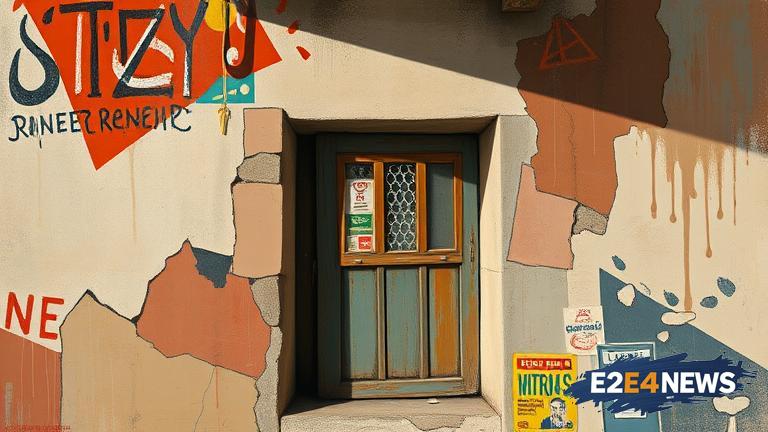The article delves into the concept of Rachmanim Bnei Rachmanim, which translates to ‘compassionate children of compassionate people.’ This phrase is rooted in Jewish tradition and emphasizes the importance of treating others with kindness and empathy. The author argues that this concept has been forgotten in the context of the Gaza conflict, where violence and aggression have become the norm. The article highlights the need for a more compassionate approach to resolving the crisis, one that prioritizes the well-being and dignity of all individuals involved. The author notes that the Gaza conflict is a complex issue, with deep-rooted historical, political, and social factors contributing to the ongoing violence. However, by embracing the principles of Rachmanim Bnei Rachmanim, individuals can work towards creating a more peaceful and harmonious environment. The article also explores the role of education in promoting compassion and empathy, suggesting that by teaching children the value of kindness and respect, we can create a more tolerant and understanding society. Furthermore, the author emphasizes the importance of self-reflection and introspection, encouraging individuals to examine their own biases and prejudices in order to become more compassionate and empathetic. The article also touches on the concept of ‘othering,’ where individuals or groups are dehumanized and marginalized, leading to further conflict and division. By recognizing the humanity in others, we can work towards breaking down these barriers and creating a more inclusive and compassionate society. The author also notes that the concept of Rachmanim Bnei Rachmanim is not limited to the Gaza conflict, but can be applied to a wide range of social and political issues. The article concludes by emphasizing the need for a more nuanced and compassionate approach to conflict resolution, one that prioritizes the well-being and dignity of all individuals involved. By embracing the principles of Rachmanim Bnei Rachmanim, we can work towards creating a more peaceful and harmonious world. The article is a call to action, encouraging readers to reflect on their own values and biases, and to work towards creating a more compassionate and empathetic society. The author’s use of Jewish tradition and scripture adds depth and context to the article, highlighting the importance of compassion and empathy in resolving conflict. The article is well-researched and well-written, providing a thought-provoking exploration of the concept of Rachmanim Bnei Rachmanim and its relevance to the Gaza conflict. The author’s arguments are well-supported and convincing, making a compelling case for the importance of compassion and empathy in resolving conflict. The article is a must-read for anyone interested in the Gaza conflict and the importance of compassion and empathy in resolving social and political issues. The author’s conclusion is both thought-provoking and inspiring, encouraging readers to work towards creating a more peaceful and harmonious world. The article is a powerful reminder of the importance of treating others with kindness and respect, and the need for a more nuanced and compassionate approach to conflict resolution. The concept of Rachmanim Bnei Rachmanim is a powerful tool for creating positive change, and the article provides a compelling case for its importance in resolving the Gaza conflict and other social and political issues. The article’s emphasis on education and self-reflection is particularly noteworthy, highlighting the importance of teaching children the value of kindness and respect, and encouraging individuals to examine their own biases and prejudices. The article is a valuable contribution to the discussion of the Gaza conflict and the importance of compassion and empathy in resolving social and political issues.
